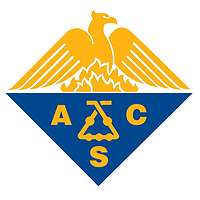Research in ab initio quantum chemistry has produced an increasing number of thermochemistry protocols, serving different needs from benchmark-level accuracy for small molecules to "chemical accuracy" for larger molecules. While in experimental thermochemistry it is accepted standard to report results complete with intervals of 95% confidence, so far few of the most advanced theoretical approaches have followed suit, based on either statistical comparison to well-established experimental data or careful assessment of high level theoretical results for individual molecules. Here we report on the development of intrinsic uncertainty estimates for the ATOMIC protocol in applications to hydrocarbons. ATOMIC is a theoretical procedure geared toward larger molecules and based on the ab initio implementation of bond separation reactions (BSRs) to reduce errors of midlevel composite approaches. Each of the components contributing to the bottom-of-the-well atomization energy (E-A,E-c) is scrutinized for possible error by comparison to a large number of very high-level results, including complete-basis-set estimates of CCSDT(Q) bond separation energies for 83 hydrocarbons up to the size of naphthalene. Some of the observations are the following: Post-CCSD(T) effects are sizable even for saturated aliphatic compounds but well-represented in a BSR model summing over bond contributions, while conjugated systems pose more problems. Another significant source of error is the complete-basis-set extrapolation of all-electron CCSD(T) contributions, which still carries an uncertainty of a few tenths of a kcal/mol for midsize molecules like benzene, even if based on large basis- set calculations (cc-pCV5Z, cc-pCV6Z). Scalar relativistic terms and diagonal Born-Oppenheimer corrections are of less concern, the former because they are well represented in a BSR model and the latter because they are small in general. Observations are cast into simple expressions that separate obvious bias from nonsystematic error, formulating the former as correction to and the latter as uncertainty of an ATOMIC result. The updated protocol, complete with uncertainties and termed ATOMIC(hc) ("hc" for hydrocarbons), is validated in comparisons with both experimental data from the Active Thermochemical Tables and high-level theoretical data generated in this work. Analysis of lower-level ATOMIC models and of further components needed to convert E-A,E-c into enthalpies of formation will be reported separately.

Estimating Systematic Error and Uncertainty in Ab initio Thermochemistry. I. Atomization Energies of Hydrocarbons in the ATOMIC(hc) Protocol
Review badges
4 pre-pub reviews
0 post-pub reviews